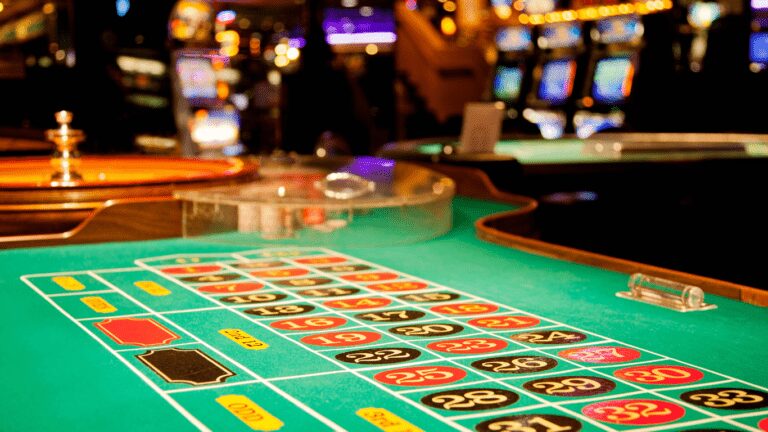Roulette has always been a game of chance, but what if there’s more to it than just luck? I’ve spent countless hours exploring strategies designed to tip the odds ever so slightly in your favor. While the spinning wheel might seem unpredictable, there’s a method to the madness if you know where to look.
Overview Of Roulette Reimagined
Roulette reimagined focuses on implementing strategic systems to refine how players approach the game. Though luck dictates the outcome of each spin, carefully applied frameworks can maximize informed decision-making.
I delve into widely known strategies like the Martingale and Fibonacci systems, outlining how they structure betting patterns to mitigate significant losses. These systems emphasize adjusting bet sizes based on previous outcomes, aligning with a disciplined and calculated gameplay approach.
In addition to traditional strategies, roulette reimagined incorporates modern tools such as probability tracking and software-supported analysis. These resources assist players in assessing trends and forming data-driven bets, reducing reliance on intuition alone.
By integrating structured frameworks with technological support, players gain an optimized method of play. This approach doesn’t alter the house odds but shifts the focus to consistency, risk management, and improved decision accuracy.
Understanding The Basics Of Roulette
Roulette is a casino classic where players bet on where a ball will land on a spinning wheel. Knowing the game’s core elements provides a foundation for applying strategic systems effectively.
Roulette Variants And Their Differences
Roulette has multiple variants, each with unique rules and odds. The main types are European, American, and French Roulette.
- European Roulette: Features 37 pockets, including a single zero. Its house edge is 2.7%, making it more favorable for players compared to other variants.
- American Roulette: Has 38 pockets, adding a double zero (00) to the wheel. This increases the house edge to 5.26%, making it less advantageous.
- French Roulette: Similar to European but includes rules like La Partage and En Prison. These rules allow players to recover part of their bets when the ball lands on zero, reducing the effective house edge to 1.35% for even-money bets.
Understanding these differences helps in selecting variants that align with your strategic goals.
House Edge And Probability Explained
The house edge is the built-in advantage casinos have over players, differing across roulette types. It ensures the casino profits over time, though short-term outcomes can vary.
For instance, in European Roulette, the house edge stems from the single zero, giving the casino a 2.7% advantage. With probabilities, betting on a single number has a 1/37 chance (2.7%) in European and 1/38 (2.63%) in American Roulette. Even-money bets, like red/black, offer almost a 50% chance, though still favor the house due to the zero(s).
Recognizing how the house edge and probability function is crucial for assessing risks and optimizing strategies aimed at steady, disciplined gameplay.
Exploring Strategic Systems

Strategic systems in roulette provide structured approaches to gameplay, offering players methods to maximize their odds and reduce unnecessary risks. By understanding and applying these systems, I make more calculated decisions, improving my overall experience.
Popular Betting Systems
Popular betting systems in roulette focus on adjusting bet sizes based on outcomes to manage risk and potential rewards.
- Martingale: This system involves doubling bets after a loss, aiming to recover previous losses with a single win. Despite its simplicity, it’s effective for short-term play when managed within a bankroll.
- Fibonacci: Using a sequence (1, 1, 2, 3, 5…), this system adjusts bets by summing the last two amounts after a loss and resetting after a win. It promotes slower progression compared to Martingale.
- D’Alembert: This method increases or decreases bets by one unit after losses or wins. It minimizes risk and suits those who prefer lower stakes.
- Labouchere: This system uses a custom sequence where players adjust bets by removing or adding numbers after wins or losses. It requires careful tracking.
These systems don’t change the house edge but offer disciplined frameworks to guide gameplay.
Advanced Strategies For Improved Odds
Advanced strategies incorporate statistical analysis and pattern recognition to refine betting choices.
- Sector Betting: Observing results to identify repeating sectors on the wheel can inform targeted betting, though randomness limits reliability.
- Hot and Cold Numbers: Focusing on frequently or rarely appearing numbers can guide choices in specific sessions but isn’t statistically predictive in the long term.
- Probability Software: Using analytic software tracks outcomes and identifies potential deviations in randomness. These tools help assess trends, offering a data-backed approach to strategy adjustment.
- Mixed Systems: Combining multiple betting strategies, such as mixing Fibonacci with D’Alembert, enhances flexibility while managing risks effectively.
I use these techniques alongside basic systems to refine my methodology and improve decision quality.
The Role Of Bankroll Management
Bankroll management serves as the foundation for any roulette strategy, ensuring prolonged and sustainable gameplay.
- Budget Allocation: Setting a fixed session budget prevents overspending and keeps losses within manageable limits. For example, I dedicate separate amounts for base bets and progression strategies.
- Staking Plans: Allocating bets based on percentage formulas (e.g., 5% of total bankroll per spin) allows me to scale risk effectively as my funds change.
- Stop-Loss and Win Goals: Establishing limits for losses and wins helps me know when to walk away, avoiding emotionally driven decisions. For instance, after securing a predefined profit, I pause to preserve gains.
- Record Keeping: Tracking sessions helps identify areas of improvement. I evaluate system performance, spot inefficiencies, and adjust for future gameplay.
When combined with betting systems, bankroll management builds discipline, ensures longevity, and minimizes financial risks across multiple games.
Tools And Technologies For Modern Players
Modern tools and technologies provide players with innovative ways to refine their roulette strategies. By leveraging online platforms and AI-driven systems, I can optimize my gameplay and make more data-informed decisions.
Analyzing Online Platforms
Online roulette platforms offer diverse features to improve the playing experience. I look for platforms with built-in statistical tracking tools, which analyze trends such as hot and cold numbers or even sector statistics. Some platforms provide tutorials and in-game guides for strategies, simplifying complex concepts. Live dealer games, available on many online casinos, add authenticity and allow me to analyze real-time gameplay patterns.
I also ensure the chosen platform’s random number generator (RNG) complies with certified fair-play standards. This guarantees unbiased results while letting me experiment with strategic betting systems confidently. Reviews and player forums help me evaluate usability, security measures, and game variance for informed decisions.
AI And Data-Driven Strategies
AI-powered tools and data-analysis software revolutionize strategic gameplay. Advanced algorithms allow me to monitor game trends, build probability charts, and identify optimal moments to enter or exit. For instance, software like roulette trackers predicts potential outcomes based on historical spins and trend patterns, granting valuable insights.
Additionally, some platforms integrate machine learning to adapt strategies to real-time results. Predictive analytics tools, when used alongside traditional systems like Fibonacci or Martingale, let me adjust bets dynamically. By combining AI insights with disciplined bankroll management, I retain control and minimize losses, even when incorporating higher-risk systems.
















































































































































































































































































































































































































































































































































































































































































































































































































































































































































































































































































 Tericaliah Flannery, co-founder of Casinomastermindx, is known for her deep understanding of iGaming technology and casino software development. She focuses on merging user experience with emerging tech tools to help players make smarter, data-backed decisions in the online casino world.
Tericaliah Flannery, co-founder of Casinomastermindx, is known for her deep understanding of iGaming technology and casino software development. She focuses on merging user experience with emerging tech tools to help players make smarter, data-backed decisions in the online casino world.
